The deadline came and went on Friday afternoon, and the decision finally came down: Marc Bergevin and the Montreal Canadiens decided not to match the one-year, $6.1 million offer sheet tendered to restricted free agent (RFA) center Jesperi Kotkaniemi, making him officially a member of the Carolina Hurricanes.
Even in the week that preceded, the internet chased it’s tail trying to wrap their head around the “why” of it all. All of the “He only scored five goals last year. He isn’t worth that” takes. Or, “This is purely revenge, and it backfired — now the Hurricanes are stuck with a player they don’t even want because they were trolling!” The speculation has been wide-ranging and, in many cases, pretty laughable, so let’s simply start with this statement: No, the Hurricanes didn’t sign this offer sheet just because they wanted revenge for the failed Sebastian Aho offer sheet back in 2019. They have a plan, and they foresee Kotkaniemi as a major part of their future. That’s the simple, obvious answer.
Yes, it’s fitting — and maybe a tad ironic — that it’s the Hurricanes and Canadiens at the center of the only two offer sheets signed for the better part of a decade, since Ryan O’Reilly’s deal with the Calgary Flames in 2013 was matched by the Colorado Avalanche. Adding fuel to the fire that this was simply “revenge” and not a hockey move, is that the Carolina front office has long been a fan of the subtext, as we saw with the signing bonus of $20 and seemingly out-of-place $15 on the end of the salary figure. They don’t skip details. According to Waddell, this is all about the engagement with fans — not bitterness or payback. If you don’t believe him, look at Tom Dundon paying Rod Brind’Amour’s fine in 2020 with an additional $17 on the end (a tip, if you will), or Andrei Svechnikov’s extra $37 in his signing bonus a couple weeks ago.
You May Also Like…
- NHL Morning Recap – February 4, 2026
- NHL Morning Recap – February 2, 2026
- Hurricanes Week Ahead: Schedule & Storylines – Olympic Break, Trade Rumors and More
- Chris Pronger Trade Tree: Hartford to St. Louis
- Carolina Hurricanes’ 3 Stars of January
The Hurricanes think this move is going to pay dividends; they believe Kotkaniemi is going to thrive in Raleigh. Between his fit in Carolina and the team’s recent history with similar, young players, it’s pretty easy to see this as an impressively executed move by general manager Don Waddell and the Hurricanes’ front office. They clearly believe in Kotkaniemi, and now we’ll see if Brind’Amour can get the most out of him. But, that’s getting ahead of ourselves; let’s back up and break all this down.
The Contract, The Considerations, and Who They’re Getting
On a basic level, yes, that $6.1 million is quite hefty for a player who registered just five goals and 20 points in 56 games last season. But here’s the thing, the only way you’re actually getting an RFA — at least one worth anything — is if you overpay. Why on earth would the team who owns the player’s rights decline a fair offer? That’s part of what made the Aho offer sheet sort of silly, even despite the large signing bonuses (Dundon is a billionaire, guys, come on, they were never deterring him from signing his best player). The whole point of the offer sheet is to put the RFA’s team in a precarious position, where they legitimately have to consider whether or not to sign it. Scoreboard reads Waddell 1, Bergevin 0 on that one.

For Bergevin, the considerations were significant. First of all, Kotkaniemi has struggled to find a consistent role and develop properly in his time there. Montreal is obviously a storied hockey city with some of the brightest lights and most passionate fans in the world. Many have already grumbled about him — let’s not pretend these guys aren’t human and ignore all the scrutiny from the fans and media — but can you imagine the added pressure of being back on this contract? That salary would have made him the fourth-highest paid player on the team, behind only Carey Price, Brendan Gallagher, and Jeff Petry (Shea Weber not included, with his move to long-term injured reserve (LTIR) for 2021-22).
Furthermore, the implications would extend beyond this year; next year Montreal has two very important RFA’s in center and rising star Nick Suzuki as well as promising defenseman Alexander Romanov. After adding Christian Dvorak and his $4.45 million cap hit, the Canadiens are right up against the cap, and those two are going to get significant raises (especially Suzuki). Some contracts come off the books, such as Ben Chiarot and Brett Kulak, but you can’t just let all your depth leave without replacing it. They will likely already have to downgrade from some of the aforementioned players, thus weakening their depth, and the Kotkaniemi deal just would have increased all these issues tenfold. The Hurricanes front office identified this tight spot Bergevin was in and they capitalized.
Though it’s obviously all speculation now, had the Canadiens matched the Kotkaniemi offer and further strapped themselves in regards to their salary cap situation, it’s interesting to wonder whether or not the Hurricanes would have turned around and done the same thing to Suzuki next summer. His brother, Ryan, is a top prospect in the organization, after all. That’s just another factor Bergevin would have had to consider, though — the Hurricanes, or any other team, could have jumped at the chance to offer sheet one of the best young centers in the league.
So who, exactly, did the Hurricanes get in Kotkaniemi?
The former third-overall pick still has the upside to be a complete, top-six center. He has good size — listed at 6-foot-2, 201 pounds — he sees the ice well, with good hands and a sneaky good shot. He’s competitive in the corners, and a willing participant in board battles, which he usually does a good job of winning. This versatility and willingness to work the dirty areas surely endeared him to Carolina.
One big question is his skating, and that’s an area Kotkaniemi must prove won’t be a detriment to him in the Hurricanes’ system, which is largely predicated on speed and aggressiveness. Kotkaniemi’s hockey sense and ability to read the play should help make up for his lack of speed. I’ll take the guy who knows how to be in the right place at the right time over the one who gets there fast, but late, every time.
Kotkaniemi definitely leans passer over shooter, but he’s a very good one. When on his game, he confidently scans the offensive zone with his head up and routinely makes creative plays between defenders’ sticks and feet. Kotkaniemi has a sense of calmness to him with the puck on his stick in the offensive zone. In his own end, he has shown to have solid awareness and an active stick while defending. He could feasibly contribute to the Hurricanes penalty kill, as well as on the power play (which seems especially likely). It will all come down to what sort of role Brind’Amour wants to use him in, though, as few Hurricanes players play on both units.
The Hurricanes surely did their homework on Kotkaniemi before the 2018 Draft. Despite Svechnikov being the clear-cut choice at second overall, every team will do it’s due diligence on any player selected in that area. With the team’s extensive success scouting and drafting from Finland, it’s pretty easy to deduce that this is a player the Hurricanes have eyed for some time. Considering the Hurricanes had reportedly been trying to trade for his rights prior to the offer sheet, he’s clearly not just some last second dart throw to try and bring a young, unproven player into the fold.
This is a player with an impressive toolkit, that simply needs to hit the reset button on his development. It’s not often you get your hands on a player with this kind of upside at such a young age. Despite the large contract for 2021-22, Elliotte Friedman (on the Aug. 29 edition of his “31 Thoughts” podcast) as well as other media members have reported that the Hurricanes have already discussed an extension with Kotkaniemi, one that would be closer to the $4 million average annual value (AAV) range.
After getting that security, and coming to a young, fun team building towards a Stanley Cup contender, the development of Kotkaniemi under Brind’Amour could make this move look absolutely stellar in a few years. The young Finn will be 21 years old for the entirety of the 2021-22 season, so there is still a ton of development time left for him; it is now up to the Hurricanes to devise a plan to get his career back on track. Speaking of…
Proper Development: Shades of Elias Lindholm, and the Aho Plan
Now, first off, I don’t say the following suggesting Montreal never would have unlocked his potential, or that the Hurricanes’ development staff is better than the Canadiens’ (that’s pretty subjective, but I suppose there are arguments for both sides, which are each rife with exciting, young talent). However, this feels like a huge opportunity for Kotkaniemi. Many young players have seen their development take off after getting a change of scenery, a fresh start. He will get that in Carolina.
Kotkaniemi was immediately pushed to the NHL as a rookie — and a young rookie, at that. His June birth date meant he barely made the cutoff date for his draft class, and as such he played his first and last game of that rookie year as an 18-year-old. Despite most pundits and scouts expecting him to be a year or two away from the NHL, he actually proved many of them wrong — at the time — with 11 goals and 23 assists in 79 games. Unfortunately, that has turned out to his best season so far, with the lack of consistent linemates, ever-changing roles, along with a couple injury issues really seeming to affect his confidence. A fresh start with a team that believes in him could be just what the doctor ordered.
It all kind of reminds me of a young, top-five pick that flashed an immense amount of skill, but never truly got his career on track until he was traded away from the team that drafted him. Incidentally, this scenario also involved the Hurricanes — they were on the other side of the equation, trading him away only to watch him blossom into a bona fide, top-line player in Calgary. I’m talking, of course, about Elias Lindholm.
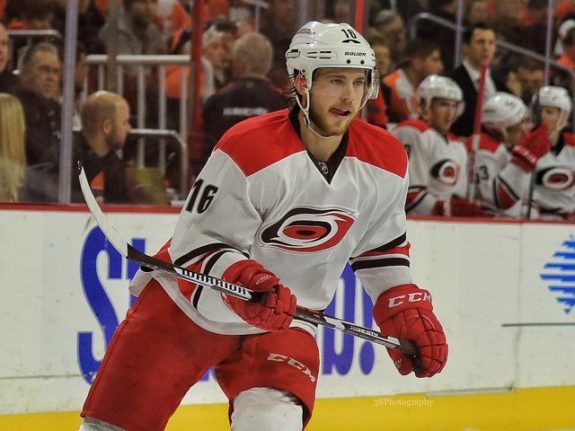
Kotkaniemi hasn’t quite scored at the level that Lindholm initially did in Carolina, but the other parallels are there. The Hurricanes would obviously love to see a comparable jump happen, such as the one Lindholm made upon arriving in Alberta (27 goals, 78 points in 81 games in his first season; up from the 16 goals and 44 points he registered his final season with Carolina).
The opportunity should be there for Kotkaniemi to make a similar leap in Raleigh. It’s hard to predict exactly what his role will be, but I feel pretty safe in two assumptions: one, that he’s basically a lock to get top-six minutes at some point in the season, and certainly in the top nine, and two, that he’s going to get on the same plan as Aho (this has actually been confirmed). He will be debuting as a Hurricane on the wing, playing and learning under Brind’Amour as well as his countryman, Aho, and then, once he’s grown and gotten comfortable in the system, perhaps he will move back down the middle in a season or two. This worked extremely well for Aho as well as for Martin Necas, but in the latter case, the smooth Czech forward has stayed on the wing, where he has thrived thus far.

Last week I spoke about Svechnikov struggling with confidence in 2020-21, and believing that played a large role in a somewhat “down” year. I think that’s another big reason why Kotkaniemi can make the jump in Carolina — the belief that the team is clearly showing in him. The Finnish forward said as much in an interview, somewhat condemning the way Montreal developed him and speaking on how excited he was to be joining a young, talented team that gave him a clear vote of confidence right off the bat. (from “Jesperi Kotkaniemi’s perception of his own development is something the Canadiens must address immediately,” The Athletic, Sept. 5, 2021) This interview seemed to further suggest that the relationship with the staff in Montreal had frayed, and between uncertainty and a lack of confidence, Kotkaniemi’s game suffered.
The “countryman” thing I mentioned above is important, too. The Hurricanes have long been known as a Finnish-laden team, and having Aho, Teuvo Teravainen, and new free-agent signee in goaltender Antti Raanta on the team should help him acclimate quickly. Granted, Montreal had Artturi Lehkonen and Kotkaniemi’s former linemate, Joel Armia, as Finnish-born teammates, but considering Aho and Teravainen are two of the best players from Finland in the world right now, it is surely exciting for a young native of the Scandinavian country to get a chance to come play alongside them. Who knows, maybe that trio will even get some run together.
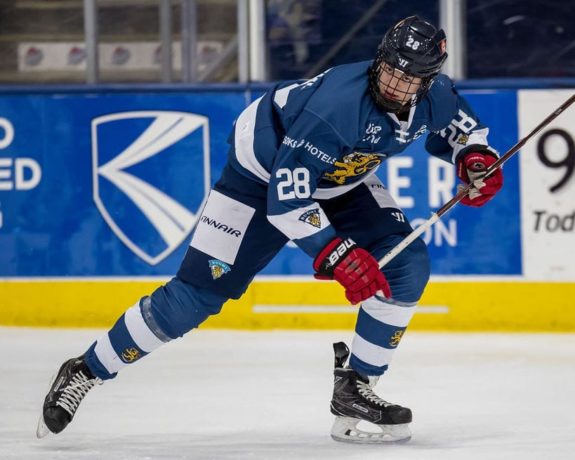
Even if he doesn’t get to play on the top line with those two, he’s still going to be set up for success. Whether that comes on that stellar first-line duo, or alongside Necas and Vincent Trocheck, which will give him an opportunity to absolutely thrive alongside two immensely skilled forwards, or alongside Jordan Staal, the captain and a fantastic role model for a young center, this season should do wonders for the youngster’s development.
“You Pay Kotkaniemi But Not Hamilton, Huh?”
Finally, we get to my favorite part of the discourse surrounding Kotkaniemi, the part that somehow… is about Alex Nedeljkovic and Dougie Hamilton! I mean, sure. The Hurricanes being willing to overpay for a 21-year-old center, but not pay market rate for a No. 1 defenseman or (at least arguably) a stud Calder Trophy-candidate goaltender who has been developed in the system for seven years, understandably looks a little funny on the surface. I think that the Hurricanes deciding to move on from those two players and target something of a buy-low candidate are two unrelated moves, but people can’t seem to grasp that, so we’ll dig into this for a minute.
Hamilton this season at $9 million is perfectly fine. Hamilton the next two, three, or four seasons has the potential to be fine, or even very good if the cap begins to rise again and contract price tags increase with it. Hamilton five, six, seven seasons from now? That’s where the cause for concern very much exists.
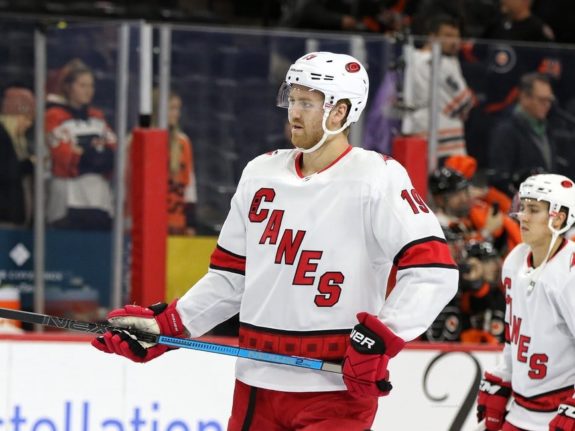
Hamilton is one of the very best offensive defensemen on the planet. He’s got a wicked shot, and, like Stephen Curry of the National Basketball Association’s Golden State Warriors, simply has that gravitational pull — he makes other players better because he absolutely commands respect from the other team, opening up space and lanes for his teammates to attack because of his own unremitting threat.
However, in Hamilton’s own zone, it’s sort of the opposite. He has a huge frame and long reach, but opponents regularly try to attack him and beat him with speed and quickness. He’s susceptible to heavy forechecking and physical teams, too, despite his 6-foot-6, 229-pound frame. Skating ability has never been his strength (and looked even worse after his broken fibula in January of 2020), and that seems unlikely to improve over the life of the contract for an already-28-year-old defenseman.
The Hurricanes didn’t want to commit that much salary cap to Hamilton with Svechnikov’s extension in the works, plus Necas’ own up a year from now. Jaccob Slavin and Brett Pesce, who I expect the Hurricanes find more vital to their success, anyway, will also be up for new deals in just a few years themselves. Those two defensemen may not be as willing to accept incredibly team-friendly deals this time around. At least, that may not be something the Hurricanes were willing to bank on, and risk not being able to pay them.
In Nedeljkovic’s case, it all seems to come down to trust, or lack thereof. Despite the aforementioned seven years in the system, only when the Hurricanes were completely devoid of options was he given a real chance to play. Even then, James Reimer was initially splitting starts with him, despite it seeming obvious to outside observers that the younger goaltender was the better option. He finally started to pull away and get a lion’s share of the starts down the stretch, as Brind’Amour finally seemed to concede and ride the hot hand.
But that’s clearly all the organization thought it was — riding the hot hand, a goalie playing above his true ability. Many goalies have gotten hot and played stretches above their heads before, and it seems the Hurricanes saw that as what happened last season. Cam Ward, Jordan Binnington, and Matt Murray are examples that come to mind, or even Scott Darling in Chicago.
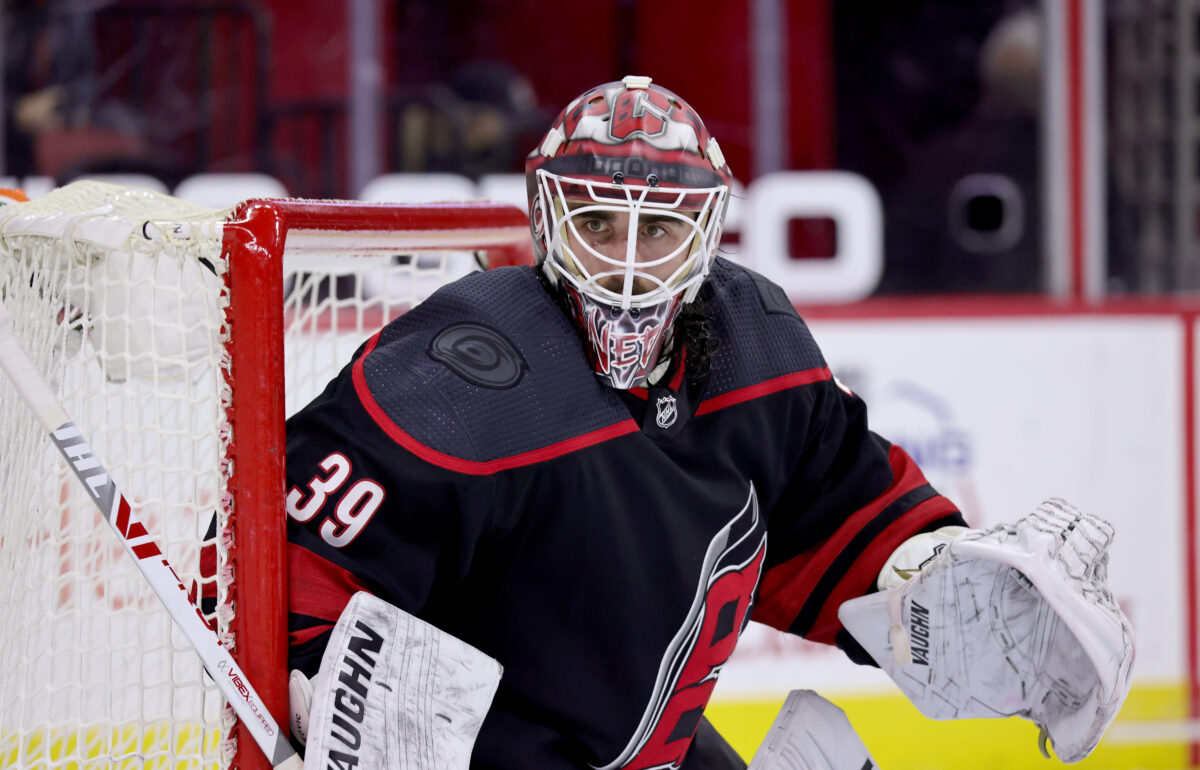
A bigger sample size that very easily could have carried more weight within the organization was Nedeljkovic’s long American Hockey League (AHL) career, where he posted some fantastic, months-long streaks of phenomenal play, but also had stretches where he let in backbreaking, weak goals far too often. It was a pattern that resurfaced a couple times in the playoffs, at very unfortunate moments (Barclay Goodrow’s late third period game-winning goal in Game 1 against Tampa Bay comes to mind). What’s more believable, a .928 save percentage (SV%) in 29 NHL games, or a .904 SV% in 159 AHL games?
All those moves are open to interpretation, and who knows if the goaltending makeover works out any better than running it back with Nedeljkovic and Petr Mrazek would have. We can look back on Nedeljkovic’s career in Detroit in a few years to tell us as to whether or not the team made the right move. The Hurricanes are probably not a worse team than they were last year, at least on paper, even factoring in the obvious downgrade from Hamilton to the embattled Tony DeAngelo.
Adding a player like Kotkaniemi to the mix has a chance at making this Hurricanes team significantly more dangerous, if they can quickly get him comfortable in the system and unlock his potential. They made the one-year, upside play over taking on contracts they viewed as risky.
Final Thoughts
I know it’s fun to speculate that this is all about revenge, that somehow the Hurricanes would be willing to light over $6 million on fire just to troll a team that… offered their player a pretty team-friendly contract, that they matched. The Hurricanes’ social media accounts milking the event from the second it was announced certainly played a role in that, too.
Regardless, the Hurricanes have operated too smart under Waddell, Eric Tulsky, and the rest of this regime to make such a hasty decision. There have been a multitude of reports that the team has been trying to trade for Kotkaniemi for some time, and that Montreal’s ask was too exorbitant. The Hurricanes then, to take a direct quote from Bergevin, “used a tool available to them in the collective bargaining agreement,” and were able to compose it in a way that left Montreal with a tough decision on their hands.
It’s going to be fascinating to track how this deal works out over the next few seasons. Are the Canadiens right to take the picks and move on from a 21-year-old former third-overall pick? Are the Hurricanes right that the change of scenery was all that was needed to unlock his talent? Both things could be true.
For now, the takeaway is simply the Hurricanes showed a masterclass in how to craft an offer sheet, take advantage of a susceptible team, and how to acquire a young, talented player that they believe is going to grow and thrive alongside their core for a long time. Additionally, I hope this is the beginning of a new era, where the use of these tools becomes significantly more common. Offer sheets are intriguing, fun, and most importantly, make for great content to cover!
With just about a week remaining before training camps begin to open, and three weeks until the preseason begins, rosters are beginning to take shape, and that is certainly true for the Hurricanes. It’s debatable whether or not this offseason is going to cut it to many fans; in fact, the DeAngelo signing already decided whether or not this offseason was a success for them weeks ago. But, the team did well to shore up its bottom pairing, add some solid veteran depth in the forward ranks, and now snatch their “big get” just before things get revved up for the 2021-22 season.
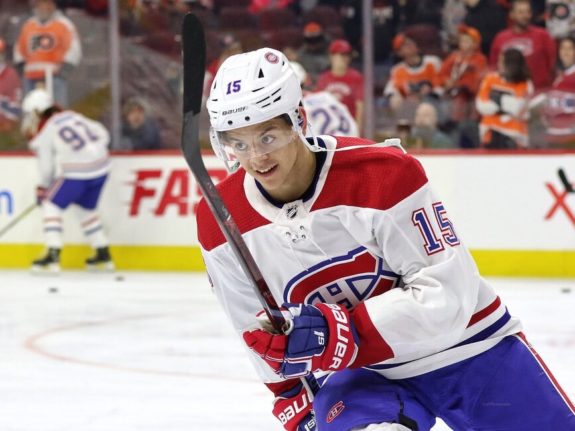
Buckle up, folks, the season is almost here — be sure to check back in for all the updates, information, and analysis as we prepare for the puck to drop on the 2021-22 season.